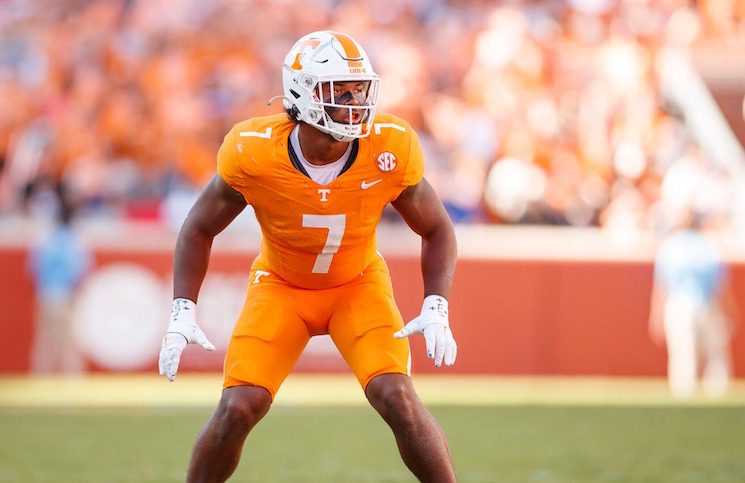
The NCAA’s Playing Rules Oversight Panel approved a landmark change to college football back in April, allowing for in-helmet communication across the college football landscape starting with the 2024 season.
The in-helmet communication won’t constantly be on during the play, like a friend on the couch helping find the open receiver in a football video game. Coaches will instead be able to communicate using in-helmet communication with one player on the field and will be cut off with 15 seconds left on the play clock.
Tennessee has been working with the in-helmet communication throughout the fall and implemented it during scrimmages.
“We had a trial run with all the changes inside of college football, the headset communication,” Josh Heupel said after Tennessee’s first scrimmage. “We’ve been using that at practice as well as tonight. That was really pretty seamless. We used the iPads on the sideline as well. Tried to structure in some timeouts where we got a chance to figure out how we’re going to use it, operate it, all the logistics that go with it, which there’s a lot more than we would think.”
With limited time to be able to talk to the quarterback, Joey Halzle shed some light on how Tennessee will be using the communication to their best advantage.
“I think the reminders is the biggest thing, where you can talk and you can just tell your quarterback like, hey, you’re in the four-down territory right now,” Halzle said. “Hey, we’re thinking field goal here if we don’t get it on third down. Or you got two downs here, we’re going to go for it. We’re going to go for the touchdown here. Hey, I’m giving you a shot of the end zone, don’t take a sack. Like you get those little quick bullet-point reminders that I think are going to be really helpful that, usually, and you still will on Friday, you go through with your guys, you’re sitting there talking through it. Well now he doesn’t have to commit that all to memory. He’s got it, he studied it, but then he also gets to hear it right before he snaps the ball again.
“I think that’s the biggest benefit you’re going to get, along with hearing the play call. You still see the signal, you do all that, but you can hear a play call now. And you’re getting it from two different channels. So I think it’s going to be nothing but beneficial, but I do think it’s the situational reminders that it’s the biggest benefit. And we’ll see how it actually plays out on the game day.”
More from RTI: Tennessee Announces Season Opening Uniform Combination
Halzle used the same word that Heupel used to describe the communication on Monday, further showing how Tennessee plans to use the new rule with their offense: Situational.
“It’ll be a combination of all those things (giving full play or just reminders),” Heupel said. “When it first came out, I think I said it, but it gives you an opportunity to have a little more description on some things that are unique within your game plan. Situational football in particular. Four-minute situation, reminding them of the play clock. You have four downs here, you don’t have four downs. Some of those things and that really happens on both sides of the football.”
It’ll be interesting to see how it’s used during the game and the feedback that comes out of games, but the in-helmet communication feels like a rule change that will only benefit Tennessee’s offense this fall.
We’ll just have to wait and see.
Stay tuned to Rocky Top Insider throughout the fall for more Tennessee football coverage.
No. 15 Tennessee will kick off the season on Aug. 31 at 12:45 p.m. ET against UT Chattanooga in Neyland Stadium.



